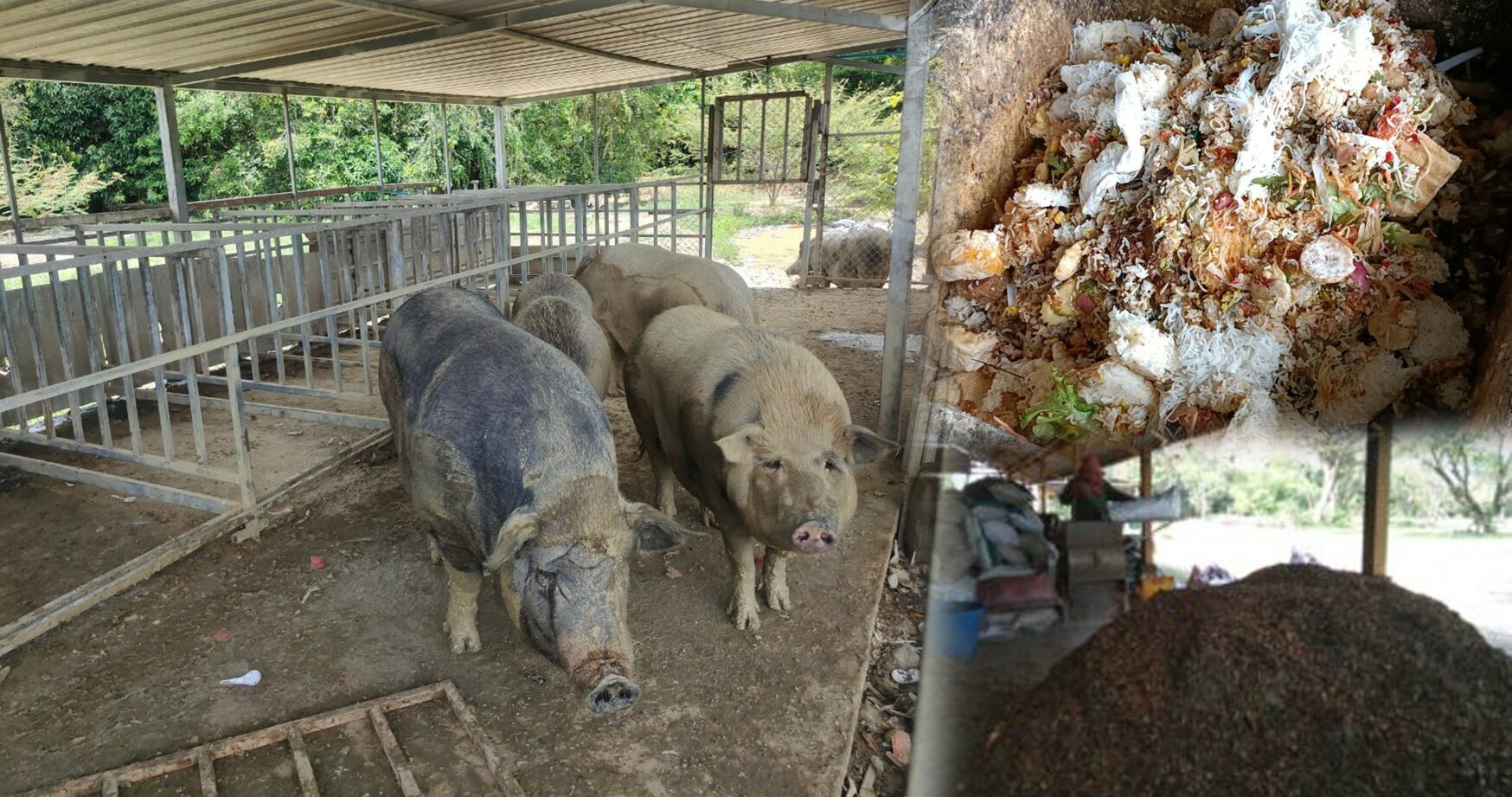The Extension of Disposable Policy to Outsourced Services and the Supply Chain
Walailak University has created policy for extending to outsourced services and the supply chain. This policy serves as a guideline for the management and reduction of waste at Walailak University. It includes initiatives to phase out the use of single-use plastic bags and food containers within the university’s premises, promoting a healthy and environmentally friendly campus. The policy was first introduced in 2022 and has been reviewed in 2023 and implemented to the present as part of the university’s commitment to sustainable waste management and environmental responsibility.
The university has guidelines for waste avoidance practices, manages waste to minimize the amount sent to landfills, and aims to create a greener and happier university image. Due to this, the university has policies and measures for waste management throughout its areas, such as prohibiting the use of plastic bags and foam containers for food services in the university’s food outlets to reduce waste at the source. The university is dedicated to becoming a green university, a university of happiness, and a sustainable university for everyone. Therefore, it aims to create a good, clean, and safe environment conducive to learning and teaching and to enhance the quality of life in the university. This includes the internal operations that focus on energy conservation, environmental concerns, and aquatic and terrestrial ecosystems.
Walailak University issues the Policy on Single-Use Plastic Waste and Disposable Item Reduction B.E. 2566 (2023), as follows:
1. This announcement shall be called “Walailak University Announcement re: Policy on Single-Use Plastic Waste and Disposable Item Reduction B.E. 2566 (2023)”.
2. This announcement shall take effect on the next day following the announcement.
3. In this announcement:
“Vendor” means all places on campus selling products and providing services to purchasers, including convenience stores, book centers, coffee shops, flea market vendors, stalls, canteen stores, and all commercial stores and services on campus.
“Supplier” means an individual or organization that provides services or sells products and equipment to Walailak University and the vendors on campus.
“Subcontractor” means a business or person that carries out work for Walailak University, such as building contractors, food services companies, and security companies.
“Disposable Item” means a product, item, or piece of equipment that is decided to be thrown away after it has been used.
“Single-use Plastic” means a product or item that is made wholly or partly of plastic and intended for single use and/or for a short period of time before being disposed of.
4. All schools, colleges, and offices at Walailak University shall create public campaigns and disseminate information to promote public awareness and proper understanding of single-use plastic and disposable item reduction.
5. All suppliers, subcontractors, vendors, schools, colleges, and offices at Walailak University shall, where possible, minimize the generation of single-use plastic waste and disposable items.
6. All suppliers, subcontractors, vendors, schools, colleges, and offices at Walailak University shall, where possible, prevent using disposable electronics to reduce the amount of electronic waste.
7. No free single-use plastic bags will be available to all vendor and subcontractor customers. However, for ready-to-eat cooked food, plastic bags made from 100% recycled materials, bioplastic bags, or paper bags can be available for customers for purchase as food containers.
8. No Styrofoam containers or compostable handle plastic bags will be available at all vendors.
9. All single-use plastic cups will be replaced with bio-plastic coated paper cups or washable and reusable ones at all vendors. Bring-your-own-cup discounts will be offered for all takeout beverage stores.
10. Single-use plastic spoons, forks, and straws will not be provided by any vendor or subcontractor unless requested by customers.
11. This policy shall apply to activities across all sites and to all staff, students, subcontractors, vendors, suppliers, and visitors.
12. The President shall be in charge of policy implementation according to this announcement. In the event of any misunderstanding of interpretation or operations, the decision of the President shall be final.
Furthermore, the university promotes and instills awareness among students and staff about the importance of waste reduction as a top priority. They emphasize efficient use of raw materials or resources. When waste is generated, they strive to find ways to reuse or recycle it to the maximum extent, taking into account the potential utility of each type of waste and relevant laws. Disposal of waste is considered the last choice. Furthermore, there are plans to adjust the marketing strategy for the university’s internal shops, moving from the “Bota Market Chic & Chill” to the “Bota Green Market.”
Due to the increasing cost of energy and environmental pollution concerns in this era, waste disposal has become more challenging. Plastics have taken over daily life, and this has led Walailak University to consider environmental issues more seriously and foster greater environmental awareness. In organizing flea markets within the university, there is a concept and advocacy to support the use of environmentally friendly products. This includes using natural packaging materials, biodegradable products, reducing the use of foam and plastic, and promoting community products, organic agricultural products, and pesticide-free vegetables. Moreover, business operators are responsible for producing products or food that are safe for consumers and the environment. This includes fostering awareness and understanding among both business operators and consumers to be more environmentally conscious.

Related link:
- https://green.wu.ac.th/wp-content/uploads/2021/09/รักษ์ที่จะลด-เลือกที่จะทิ้ง.pdf
- https://dla.wu.ac.th/th/archives/3184
- https://waste.wu.ac.th/?page_id=8870
- https://green.wu.ac.th/wp-content/uploads/2021/11/12.3.1.pdf
- https://green.wu.ac.th/waste/
- https://botany.wu.ac.th/?page_id=26259.
- https://www.facebook.com/photo/?fbid=637276775115400&set=pcb.637337501775994
- Announcement-of-Walailak-University-Subject-Policy-on-SingleUse-Plastic-Waste-Reduction.pdf (wu.ac.th)
Goal 12: Responsible consumption and production


